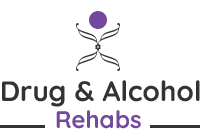Drug Treatment Guide
WRITTEN BY CAYLA CLARK, BA – APRIL 10TH, 2020
What is Drug Treatment?
Drug addiction treatment is offered to those who are physically and mentally dependent on chemical substances and need professional help in order to stop using. Because drug addiction is such a powerful, complicated and personalized disease, drug treatment options will vary significantly depending on the individual involved.
“Drug treatment” is a broad term, though specific treatment programs will offer a variety of services, take place in different settings, and offer differing levels of professional care. Different treatment options will last for varying lengths of time. For example, an inpatient drug rehab program might last for three months, while a medical drug detox will last for a total of two weeks.

Search For A Rehab Center Near You
Drug addiction is a chronic, relapsing brain disease, characterized by obsession and compulsion. Because of this a comprehensive and long-term treatment plan will always be necessary, regardless of the severity of the substance abuse disorder. Those who do not undergo intensive long-term treatment followed by ongoing aftercare are far more likely to experience relapse at some point down the road. The goal of every drug treatment program is to prevent relapse by paving the way for a happy, fulfilled and drug-free future.
Is Drug Treatment Right for Me?
You might be wondering if admission into a drug treatment program is the best solution for your current circumstances. Ask yourself the following questions:
- Have I tried to cut back on my drug use or quit entirely, only to find myself unable to do so for any length of time?
- Has drug use caused me serious interpersonal consequences?
- Have my friends and close family members expressed concern about my drug-related habits?
- Have I been experiencing physical symptoms related to drug use?
- Am I willing to do what it takes to get clean and sober, and go on to live a healthy and productive life?
If you answered “yes” to one or several of the above-listed questions, seeking professional help is a necessity. It is important to understand that drug addiction progressively gets worse; if symptoms are not treated in a professional setting, they will not simply remedy on their own. If you are still unsure as to whether or not you would benefit from professional, medical care, please feel free to reach out to us today with any questions you may have.
Benefits of Drug Treatment
- Get your life back from addiction
- Repair broken relationships
- Rebuild your finances and career
- Wake up with a purpose without cravings
- Be trustworthy again and don't commit crimes
- Stop destroying your health and sanity
What to Expect from Drug Treatment
Drug addiction treatment will typically include a combination of intensive therapeutic methodologies and medication-based interventions. When it comes to drug addiction treatment there are a wide variety of evidence-based approaches – the treatment methods that are used will depend heavily on the unique needs of the individual. Most treatment centers will employ cognitive behavioral therapy, relapse prevention, life skills training, family therapy, an introduction to the 12 step method of recovery and numerous other services.
Drug addiction treatment has proven to be essential to the long-term maintenance of recovery. According to a study published by the National Center for Biotechnology Information (NCBI) and written by A. Thomas McLellan and James R. McKay of the Penn-VA Center for Studies of Addiction and The Treatment Research Institute at the University of Pennsylvania, “Over the past twenty years many of the traditional forms of substance abuse treatment (e.g., methadone maintenance, therapeutic communities, outpatient drug free and others) have been evaluated multiple times and shown to be effective.” (Ball and Ross, 1991). (1)
The same study confirmed that, “Virtually all studies of rehabilitation have shown that patients who stay in treatment longer and/or attend more treatment sessions, have better posttreatment outcomes.” (Ball and Ross, 1991). (1) This essentially means that the longer an individual stays in drug treatment, the better the chances of avoiding relapse long-term.

Long-Term Recovery is Possible
Treatment medications will be available to those who have struggled with opioid addiction in order to alleviate symptoms of post-acute withdrawal while minimizing the cravings that often lead to relapse. Medication assisted treatment often involves drugs such as Suboxone®, buprenorphine, methadone and naltrexone which are prescribed by a licensed clinician.
The behavioral therapy services that most treatment programs incorporate help patients successfully combat cravings, learn essential life skills like communication, relationship skills and effective parenting, and engage in self-care and positive self-talk. A lot of behavioral therapy revolves around relapse prevention, which is key to success in lifelong recovery.
Finding the Right Drug Treatment Center
Finding the right drug treatment center to suit all of your unique and individual needs can be overwhelming, seeing as there so many reputable and legitimate options to choose from. However, in order for drug treatment to be a one-time deal (which is always the goal), it is crucial that you pick a specialized treatment program that will cater to your personal requirements while offering you the most comprehensive and effective care possible. If you know that you are in need of professional treatment but you aren’t sure what steps to take next, we are available to help.
Simply give us a call as soon as possible, explain your current circumstances and your personal treatment goals, and we will find a drug treatment program that will cater to your needs and get you started on your own personal journey of recovery as quickly as possible.
References
- Ball JC, Ross A. 1991. The Effectiveness of Methadone Maintenance Treatment. New York: Springer-Verlag.
